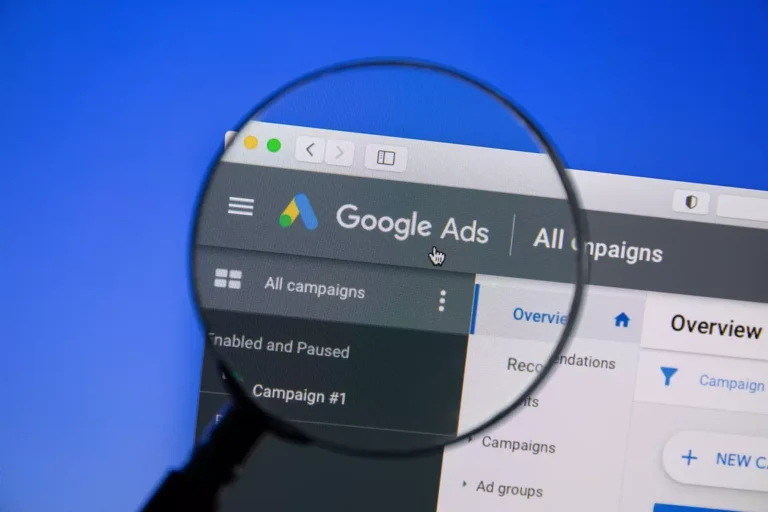In the fast-paced world of digital marketing, SEO optimization plays a pivotal role in driving organic traffic to websites. As search engines are the gateway to online visibility, mastering the art of SEO is crucial for businesses aiming to increase their digital footprint. At the heart of SEO strategies are keywords, which act as critical signals to search engines, helping them understand a website’s content and context.
Over the years, Google’s search algorithm has evolved significantly, changing how keywords are evaluated and utilized. While once the focus was solely on keyword frequency, today’s algorithm emphasizes the semantic context in which these keywords are used. Google SEO now requires a fine balance between keyword placement and content relevance.
Bohu Digital, a leader in digital transformation strategies, understands the intricacies of these evolving trends. As Google tightens its approach to ensure a more refined user experience, businesses must stay informed on how to integrate keywords effectively without crossing into territories that may invoke Google penalties. In this article, we will explore how modern SEO practices can align with Google’s approach, particularly how keywords should be effectively and sensibly utilized in content creation.
Does Google Still Use Keywords for SEO?
Yes, Google still uses keywords as a fundamental part of its SEO algorithm. However, its methods and strategies for recognizing and prioritizing these keywords have evolved significantly. Today, Google’s algorithm is designed to understand the context and relevance of content rather than just counting keyword appearances. This subtle shift means effective SEO is now about creating valuable, contextually relevant content that naturally incorporates keywords.
In the earlier days of SEO, the focus was heavy on keyword frequency, often leading to practices like keyword stuffing. Google has moved beyond this primitive approach to keyword recognition, favoring a more sophisticated understanding through natural language processing and machine learning. This enables Google to discern the intent behind search queries and to deliver the most accurate and helpful results, reflecting real-world language use.
Contemporary practices in SEO optimization involve strategically placing keywords within web content, ensuring they appear naturally within the text and align with the user’s search intent. Leveraging related terms and focusing on long-tail keywords is how to create winning SEO strategies. Creating content that clearly understands your audience’s needs and search behaviors will encourage better ranking as Google continues to refine its algorithm for a more contextual search experience.
The takeaway for business owners and marketing professionals is clear: prioritize user-centric content that offers real value. Partnering with Bohu Digital can enhance your content strategy, ensuring it meets the evolving requirements of Google SEO. With Bohu Digital, your content will not only incorporate relevant keywords but also be designed to generate engagement and visibility.
Does Google Penalize Keyword Stuffing?
Yes, Google does penalize keyword stuffing. As one of the oldest black-hat SEO techniques, keyword stuffing attempts to manipulate search engine rankings by overloading a web page with excessive instances of target keywords. Such practices can be detected by Google’s algorithm and lead to significant SEO penalties.
Definition and Examples of Keyword Stuffing
Keyword stuffing is a manipulative tactic where web content is filled with excessive repetition of keywords, often in an unnatural manner. Examples include blocks of text listing cities and regions a page is trying to rank for, or repeating the same words or phrases so often that it sounds unnatural. This tactic aims to trick search engines into ranking the page higher but often results in a poor user experience.
How Google’s Algorithm Detects Keyword Stuffing
Google’s sophisticated algorithm uses numerous signals to detect keyword stuffing. It looks at the density of keywords in comparison to the total text content and assesses whether the language appears natural or forced. Advanced semantic and context analysis allows Google to discern meaningful content from attempts to deceive the ranking system.
Consequences of Keyword Stuffing on SEO Rankings
Engaging in keyword stuffing can lead to a Google penalty, which may drastically reduce a site’s visibility in search engine results pages (SERPs). This practice can undermine the credibility of content and degrade user experience, which are critical factors Google considers for ranking. Business owners and marketing professionals must prioritize creating informative, engaging content over attempting to artificially boost rankings.
Conclusion:In conclusion, while keywords remain an integral part of SEO strategy, overusing them through keyword stuffing is counterproductive and can lead to penalties that harm your online presence. Bohu Digital emphasizes ethical SEO practices that balance keyword integration with valuable content creation, ensuring your website’s success is both legitimate and sustainable.
What is the Google Penalty in SEO?
A Google penalty in SEO refers to the negative impact on a website’s search ranking due to violations of Google’s search engine guidelines. A website might be penalized if it employs black-hat SEO techniques, such as keyword stuffing or unnatural link building. Understanding penalties is crucial for maintaining or improving your website’s visibility.
Google’s penalty system is designed to uphold the quality of search results and ensure a fair playing field for all websites. These penalties can be automatic, resulting from algorithmic updates or manuals issued after human review. Each penalty type has its own triggers, ranging from manipulative practices to thin content, and can severely damage a website’s ranking.
Explanation of Google’s Penalty System
Google’s penalty system is a sophisticated method to enforce adherence to quality guidelines. Algorithmic penalties occur when Google’s automated processes detect elements that contravene guidelines, such as excessive paid links. Manual penalties, on the other hand, are imposed after a Google reviewer audits a website. These penalties often require significant effort to remedy, affecting both credibility and traffic.
Different Types of Penalties and Their Triggers
The most common penalties are related to over-optimized content, like keyword stuffing, or unnatural link profiles. Cloaking, where content presented to search engines and users differ, is another frequent trigger. These practices attempt to manipulate Google’s ranking system but often backfire when Google identifies them.
How to Recover from a Google Penalty
To recover from a Google penalty, it’s critical to first identify the root cause. Regular audit of your SEO practices helps in steering clear of practices that could lead to penalties. Tuning website content to meet Google’s quality standards and removing any suspicious links are essential steps. If the penalty is manual, filing a reconsideration request with Google after rectifying issues is necessary.
Partnering with experts like Bohu Digital ensures adherence to best practices, avoiding penalties while maximizing visibility and growth potential. Their specialized services ensure comprehensive SEO optimization that aligns with Google’s ever-evolving algorithms, eradicating risk and enhancing web presence.
Do Google Ads Hurt SEO?
Business owners and marketing professionals often question whether investing in Google ads can negatively impact their SEO optimization efforts. The good news is that running Google ads has no direct negative effect on SEO performance. In fact, using both can create a powerful dual strategy to enhance your online presence.
Let’s delve into the relationship between Google Ads and organic SEO. While Google Ads are paid advertisements that promote immediate visibility for your website, organic SEO is focused on optimizing your site for search engines to improve its ranking over time. These methods complement each other; ads provide quick exposure, whereas SEO builds sustainable traffic.
Potential conflicts between the two typically stem from budget allocation and focus. Allocating substantial resources to Google ads might divert attention from SEO efforts. However, strategic use of both can leverage the unique strengths of each: generating immediate leads while building long-term brand authority.
To successfully balance ads with SEO, consider integrating your advertising insights into your organic strategies. The data from Google ads can create a winning SEO strategy by highlighting effective keywords and audience behaviors. Bohu Digital specializes in creating synergistic marketing campaigns that seamlessly combine Google ads with SEO, ensuring comprehensive visibility and performance.
In conclusion, instead of viewing Google ads and SEO as separate or conflicting efforts, Bohu Digital advocates using them in conjunction to maximize your digital marketing ROI, drawing on our extensive expertise to tailor approaches that cater specifically to your business’s needs.
Conclusion
Recap on Google’s Use of Keywords in SEO
In the dynamic realm of Google SEO, keywords continue to play a vital role in helping businesses connect with their audience. Google uses keywords strategically to understand the relevance and context of web content. However, emphasis is placed on the quality and intent behind the keywords rather than just quantity. Modern SEO strategies should thus focus on integrating keywords authentically within high-value content to align with Google’s evolving algorithm preferences.
Best Practices for Avoiding Penalties
To prevent falling afoul of Google penalties, it is crucial to avoid tactics like keyword stuffing, ensure mobile optimization, and focus on user-centric content. Businesses are encouraged to keep an eye on Google’s updates and prioritize a seamless user experience. By adhering to ethical SEO practices, businesses can enhance their rankings without risking detrimental outcomes.
Future Perspectives on SEO and Keyword Strategies
Looking ahead, the trajectory of SEO seems to indicate a deeper integration of AI and machine learning. Future SEO practices may involve more sophisticated keyword intent analysis and adapting to voice search trends. Businesses should remain adaptable, leveraging keyword data to meet user search behavior insights dynamically. This forward-looking approach will be crucial for maintaining relevance and a competitive edge in digital marketing.
Partnering with Bohu Digital can revolutionize your digital marketing strategies. Leverage our expertise to craft a valuable and dynamic SEO strategy that ensures alignment with Google’s best practices. Level up your digital presence with our cutting-edge strategies and comprehensive keyword-driven solutions for substantial growth and impressive ROI.




























































































